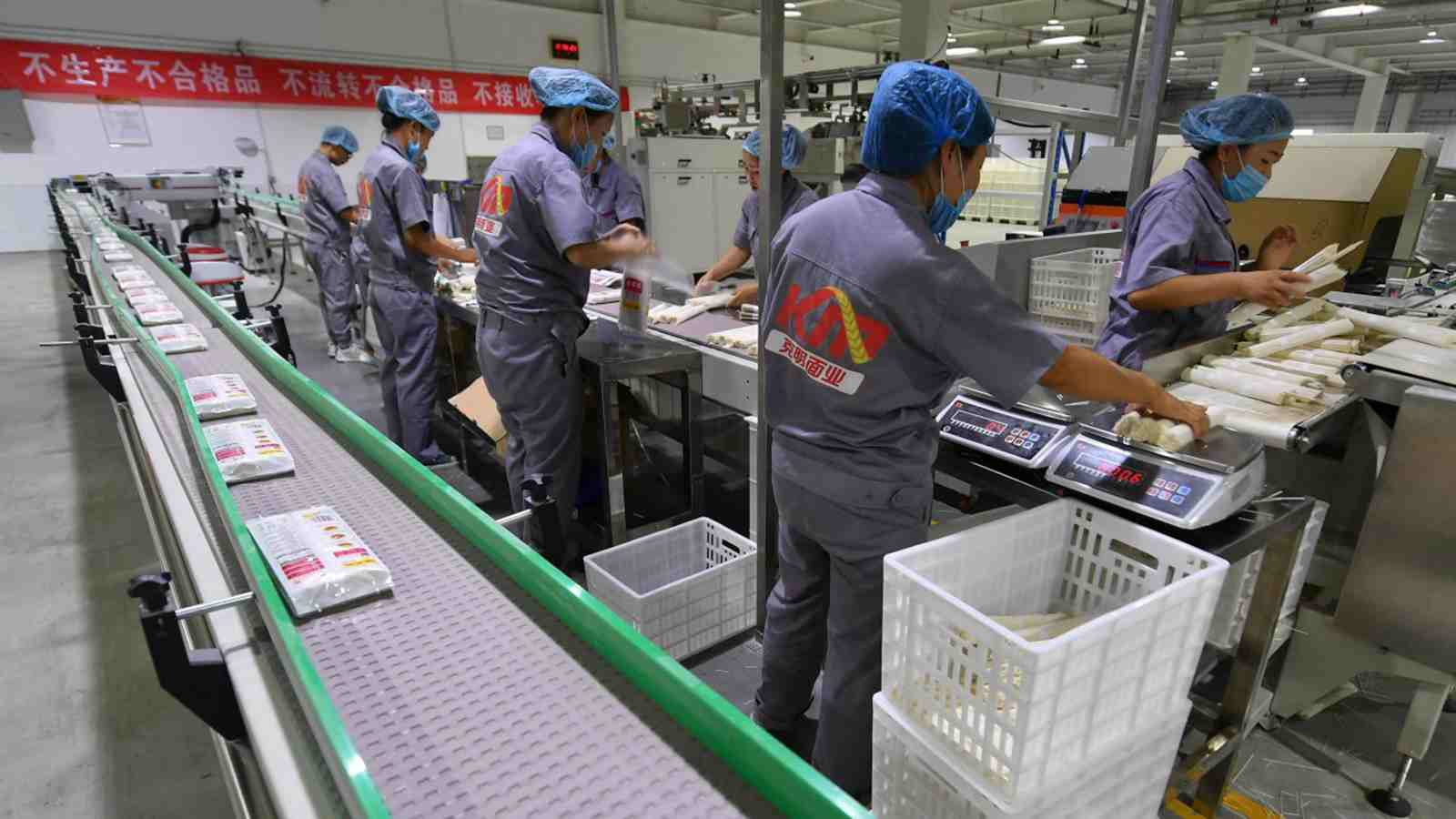
Business
22:47, 27-Aug-2018
How does the Belt and Road Initiative benefit China's development?
Updated
22:42, 30-Aug-2018
By CGTN's Zhang Saisai
02:01

The Belt and Road Initiative was first put forward by China's President Xi Jinping in 2013 in Kazakhstan, calling for regional integration to create a cohesive economic area through the building of infrastructure, trade growth, and promotion of cultural exchanges.
While overseas projects have always been the center of attention, China's various localities are now seeking to leverage the BRI as a way to build momentum for local development. As for how the initiative affects reform and benefits China, Professor Zhao Lei from the Institute for International Strategic Studies of the Central Party School of the Communist Party of China talked about two relevant aspects with Robert Lawrence Kuhn.

Production lines of Xinjiang Kemen Noodle Manufacturing Company in Urumqi, Xinjiang, where output is being stepped up with wheat flour from Kazakhstan, on August 13, 2018. / VCG Photo
Production lines of Xinjiang Kemen Noodle Manufacturing Company in Urumqi, Xinjiang, where output is being stepped up with wheat flour from Kazakhstan, on August 13, 2018. / VCG Photo
Zhao Lei said, at first, Chinese cities should open up more and attract talent they need in the process of developing the BRI.
As one of the five countries in Central Asia, Kazakhstan is a landlocked country bordering northwestern China's Xinjiang Uygur Autonomous Region, and is geographically near China's northwest provinces of Shaanxi, Gansu, and Qinghai, which lag behind in reform and opening-up due to a dearth of opportunities, robust financial infrastructure and sound services. Yet with the BRI, these relatively underdeveloped areas have ushered in the spring for reform and opening-up in the new era.
Second, more importance should be attached to the growth of private enterprises, which are like "fresh troops" with state-owned ones being vanguards. In the past five years, to some extent, state-owned enterprises have made strong gains, but without the participation of private counterparts, it is highly likely that the initiative will not obtain the expected results.

SITEMAP
Copyright © 2018 CGTN. Beijing ICP prepared NO.16065310-3
Copyright © 2018 CGTN. Beijing ICP prepared NO.16065310-3